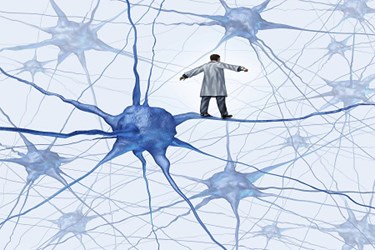Researchers Show Involvement Of DNA Modifications in Alzheimer's Disease
By C. Rajan, contributing writer

In a couple of recent breakthrough research reports, scientists have revealed how modifications to DNA are involved in Alzheimer's disease
A new study by researchers at Brigham and Women's Hospital (BWH) and Rush University Medical Center reported how early changes in brain DNA methylation are involved in Alzheimer's disease. The study was recently published online in Nature Neuroscience.
DNA methylation is a biochemical modification within the DNA that indicates whether the DNA is biologically active in a given region of the human genome. According to the researchers, this is the first large-scale study related to the brain and Alzheimer's disease, which employs epigenome-wide association (EWAS) studies.
"Our study approach may help us to better understand the biological impact of environmental risk factors and life experiences on Alzheimer's disease," said Philip L. De Jager, lead study author. "There are certain advantages to studying the epigenome, or the chemical changes that occur in DNA. The epigenome is malleable and may harbor traces of life events that influence disease susceptibility, such as smoking, depression and menopause, which may influence susceptibility to Alzheimer's and other diseases."
The researchers analyzed samples from 708 donated brains, and found that DNA methylation levels correlated with Alzheimer's disease in 71 markers, all of which are found in the ANK1 and RHBDF2 genes, as well as ABCA7 and BIN1 which contain known Alzheimer's disease susceptibility variants. Further investigations also revealed other nearby genes whose RNA expression was altered in brain samples with Alzheimer's disease.
The results of this study are complemented by another separate study performed by researchers at the University of Exeter Medical School and King's College London. This research team found strong evidence that epigenetic changes in the brain play a role in Alzheimer's disease. This study is also published online in Nature Neuroscience.
Epigenetic changes are one of the mechanisms by which the environment can interact with the genome. Epigenetic changes are an important focus for researchers as they are potentially reversible and may provide targets for the development of new therapies.
This study found that chemical modifications to DNA within the ANK1 gene are strongly associated with Alzheimer's disease-related neuropathology in the brain. The researchers saw that people with more neuropathology in their brains had higher levels of DNA modifications within the ANK1 gene.
The researchers also observed that the entorhinal cortex, and other cortical regions affected by the disease showed the most DNA modifications within the ANK1 gene. In contrast, no significant changes were observed in less affected regions of the brain.
Professor Jonathan Mill, of the University of Exeter Medical School and King's College London, who headed the study, said: "This is the strongest evidence yet to suggest that epigenetic changes in the brain occur in Alzheimer's disease, and offers potential hope for understanding the mechanisms involved in the onset of dementia. We don't yet know why these changes occur – it's possible that they are involved in disease onset, but they may also reflect changes induced by the disease itself."
According to the researchers, more than 26 million people globally are known to be suffering from Alzheimer's disease — and that number continues to increase as more and more cases are diagnosed every year due to an aging population. There is little information known yet about how and why the disease develops in specific brain regions.
Dr. De Jager said, "Our work has helped identify regions of the human genome that are altered over the life-course in a way that is associated with Alzheimer's disease. This may provide clues to treating the disease by using drugs that influence epigenomic function."
